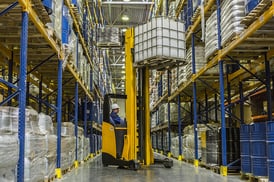
When it comes to selling used machinery and equipment, many people think the process begins and ends with placing a listing and waiting for a buyer. However, those familiar with the secondary market know there may be an important figure working behind the scenes to facilitate a fair, informed, and successful transaction: the equipment appraiser.
Traditionally, appraisers are viewed as professionals who determine the fair market value of assets for various purposes. However, in some instances, experienced appraisers, especially those with an asset management background, may consider taking on a more direct role in the resale of used machinery in the right situation, which would involve post-valuation advisory and consulting work.
One of the biggest challenges a seller can face is pricing. Set the price too high, and the equipment may sit on the market for months. Set it too low, and you risk leaving money on the table. An equipment appraiser uses detailed market analysis, depreciation trends, auction data, and comparable sales to determine a defensible, market-aligned value that will increase the chances of attracting serious buyers.
Appraisers often have extensive networks in specific industries, including dealer, broker, and end-user contacts. Their market knowledge allows them to identify potential buyers and suggest the most effective resale channels, whether that's a private sale, public auction, online platforms, or a brokered transaction.
Existing client relationships from prior valuations may also benefit the situation, where an appraiser might take on a complementary role with the seller, especially if that client has minimal experience liquidating used equipment on their own. They might advise on pre-sale improvements, such as minor repairs or upgrades that can meaningfully impact the sale price. They may also suggest bundling related assets or recommending timing strategies.
In some cases, equipment appraisers can act as independent brokers, helping to negotiate deals between buyers and sellers. Their presence as an unbiased third party can help close gaps in expectations and ensure the transaction proceeds smoothly.
Whether you're a business liquidating surplus equipment, a lender recovering assets, or a buyer looking for fair market deals, the direct involvement of a certified equipment appraiser can be the difference between an efficient and effective sale and a drawn-out, uncertain process.
In today's data-driven resale environment, the most successful transactions are rooted in accurate information, expert insight, and clear communication. No one is better positioned to provide that foundation than the equipment appraiser, who knows the market and can act as an independent source and provide value added to both buyers and sellers.



